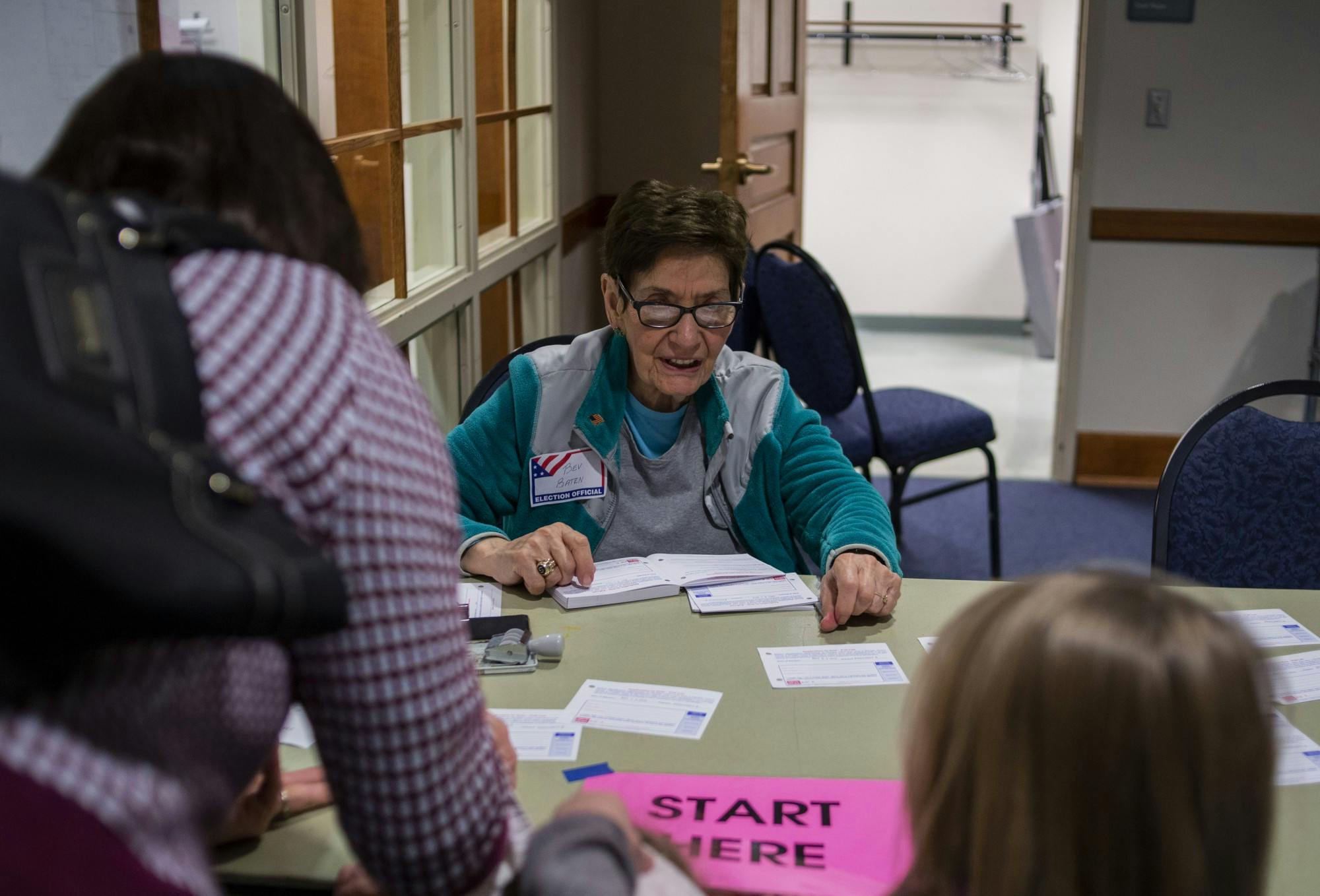Michigan State’s political science department hosted the seminar “Five Things to Know About The 2020 Primaries” on Feb. 18, featuring political science professor Matt Grossmann, who directs Michigan State's Institute for Public Policy and Social Research, or IPPSR.
The Michigan Primary is March 10.
Grossmann is the author of several books, including his most recent one, “Red State Blues.” He has written columns for The New York Times regarding politics and he is a contributor to the data-driven political news site FiveThirtyEight.
1. Candidates need a majority
In the hour-long seminar, Grossmann emphasized the fact that the election is a majoritarian system.
“It’s a majority system, but it currently has no majority. It gets to a majority as candidates drop out and their support goes to other candidates,” Grossmann said.
The number of Democratic candidates has made it hard to determine who will end up with the nomination, but the country will get a better understanding soon, Grossmann said.
“We have a lot of the nation voting in early March. By that time, it will be very clear, not necessarily which candidate will automatically be the victor, but that quite a few candidates have no path to getting a majority of the delegates,” Grossmann said.
Grossmann said the majoritarian system is most likely to benefit Democratic candidate Bernie Sanders, according to the FiveThirtyEight model.
“Bernie Sanders is by far the most likely to win a majority of the delegates based on the performance so far,” he said.
2. But there isn’t a majority so far
Grossmann said the party lacks a consensus on a single candidate.
“Republicans famously didn’t decide on an alternative to Donald Trump in 2016, and Democrats did not decide on a nominee in 2020,” Grossmann said. “To the extent that they did, it was Joe Biden first and Elizabeth Warren second.”
This lack of agreement on a candidate, as well as the number of candidates, has led to chaos in the Democratic party, Grossmann said.
3. Media narratives have impact
He also stressed the impact of narratives perpetuated by the media.
“The media does respond to real things in the world,” Grossman said. “They respond to polls, they respond to money, they respond to events, but they can also come up with whatever story they want to come up with.”
In a world that is ever so surrounded by the media, it is no wonder candidates have slid down the polls, Grossmann said. He highlighted Elizabeth Warren and said the media negatively impacted her candidacy.
Support student media!
Please consider donating to The State News and help fund the future of journalism.
“There’s an event, often, where she seems not to be doing as well,” Grossman said. “And then you start to get people noticing signs of her falling. ... The poll numbers are going down.”
The media is able to show candidates’ shortcomings and produce narratives which can show them in a lesser light leading to a fall in popularity, he said.
4. Negative campaigns benefit bystanders
Grossmann also said taking negative shots at other candidates hardly benefits the one making the jab, but can benefit the other runners.
“If I’m in a multi-candidate race, if I’m Elizabeth Warren and started attacking Bernie Sanders, it could not help me. It might help Pete Buttigieg or Mike Bloomberg or someone else,” Grossmann said.
“The other problem is that attacks lead to counterattacks,” Grossman said. “90% of consultants say that when you are attacked in a campaign, you don’t just answer the attack. You attack back on an unrelated issue. So, what that means is you get into a cycle of negativity.”
5. Much will be forgotten by November
Currently, the Democratic Party has six competitive candidates running for the nomination. Grossman said supporters of a losing candidate will often support the nominee.
“In 2016, 79% of Sanders supporters in the primary voted for Clinton,” Grossmann said. “The general election is a long way away. A lot that looks chaotic now will not look quite as chaotic by the time we get to November.”
Jeff Conroy-Krutz, an associate professor of political science at MSU, spoke to why the department started the speaker series.
“We wanted to do a better job connecting the expertise that our faculty have on subjects that are of interest with regard to current events to the undergrad community and MSU more broadly,” Conroy-Krutz said. “We thought we could do a service that way provoke some conversations about politics and also show people that the research that we do has real-world implications.”
Conroy-Krutz said the department plans on seminars like this one at least once a semester.
Discussion
Share and discuss “Political science department hosts 5 things to know about 2020 primaries” on social media.








